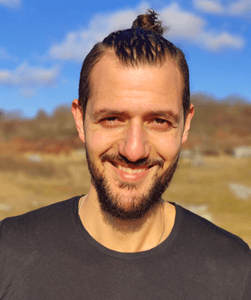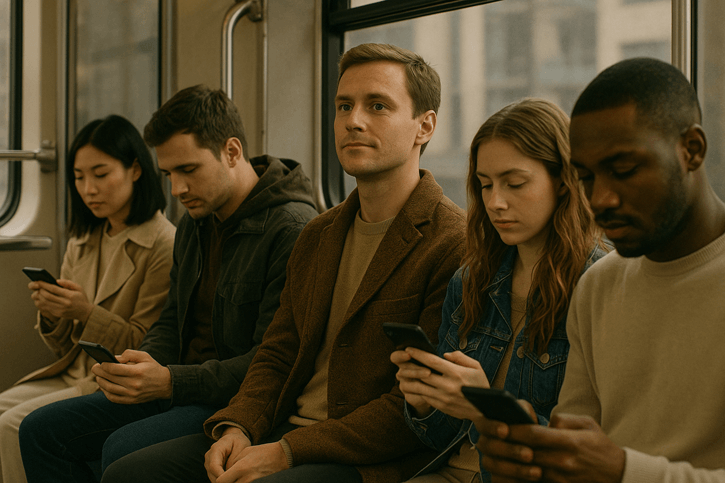Do you know that your attention is a scarce resource being “mined”?
We live in an age where we have an extreme abundance of information, which can be a good thing, but can also be overwhelming. Especially since a human’s time is finite (at least until we invent immortality serums). With an increased amount of information available it becomes harder and harder where to focus this limited time, and attention. Nobel prize winner Herbert A Simon expressed it: “a wealth of information creates a poverty of attention”.
He is also the person who coined the term “attention economy”, the concept where human attention is treated as a scarce, valuable commodity that is captured and monetized, particularly by information technology companies and media. While coined in the 1970s, the concept of attention economy has become even more relevant with the rise of internet and digital tech where companies now compete for our limited time and focus. Today, the best software engineers in the world use various strategies to draw users in and keep them engaged for as long as possible.
Another way of looking at it: if there is no product – you´re the product.
I am reminded of a couple of examples which I want you to imagine with me.
The mum who was on a meeting while picking her child up from school
At school pick up there is one person I see daily with air pods in her ears, with her attention focused in a meeting. Sometimes with the phone up, sometimes not. She barely says hi to the school staff, nor to her child as she picks her up.
Might sound extreme, but unfortunately this is not a rare sight.
This has some quite severe potential effects:
- Role modelling unwanted behavior
- The child can feel unimportant or deprioritized
- Reduced parent-child bonding
- Stress and irritation
- Lowered mental health and well-being
The scrolling man who missed to get off the bus
Public transportation nowadays is mostly quiet, with everyone glued to their devices. I am that “weird guy” trying to be present, looking out the window, or meeting other passengers’ eyes, offering a smile. Recently I witnessed a man yelling at the bus driver to stop the bus, only that we were between two stops. The man had forgotten to press ‘stop’ as his attention was fully on his social media feed.
This slightly comical episode also has a deeper significance.
When we are constantly connected we bombard our brain with information, and our nervous system with dopamine kicks, meaning that we are pretty much constantly in alert mode. Just as the woman at school, this can have effects over time:
- Increased stress
- Reduced sleep & mental health
- Restlessness & irritability
- Trouble focusing
- Lowered quality of life & well-being
Daring to Be Fully Present
My invitation to you is simple:
- Identify a situation in your life where you habitually turn to your smartphone.
- Think about how you would like this situation to look like instead
- Challenge yourself not to use your phone and instead to something else
The benefits
Research suggests that taking control over your attention and directing it to being present can have an immediate reduction of stress. Even 10-20 seconds of grounded attention slows your breathing and heart rate, reduces muscle tension and decreases cortisol. You get better emotional regulation, stronger relationships, improved wellbeing and mental clarity, and increased enjoyment of small everyday moments.
Improved quality of life free and available at an instant!
Did this strike a chord? I’m sharing regularly on the topic of how technology is impacting our lives and how to find a better balance. Check out this earlier post for a great place to start your journey towards tech-life balance as well as my book Tech-Life Balance: 101 Ways to Thrive in a Digital World.

Taíno Bendz is the founder of Phone Free Day and his own consulting business, and his message on mindful and intentional technology usage has reached and inspired hundreds of thousands of people around the world. He is a public speaker, workshop facilitator, and conducts research on digital technology usage. Taíno holds a Master’s Degree in Industrial Engineering and Management and has spent the last 10 years working in technology sectors such as renewable energy, healthcare IT, and software automation. He currently lives in Sweden with his family. He is the author of Tech-Life Balance.





